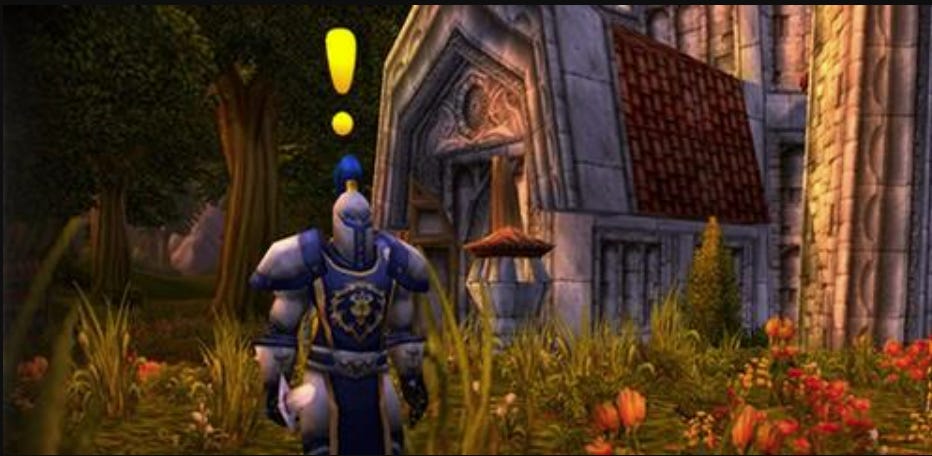The Wording of Course Goals Absolutely Matters
Ever complete a game quest with 'understand' as an end goal?
First, let me say I wrote a heck of a lot of course goals in my day with the word ‘understand’ in them. There. I have confessed and you can let it be known. We all start somewhere.
Now just thinking about reading the words “At the end of this module you will understand…” makes my eye twitch and my hands itch to get a word processor out and start changing that goal to something a student can do.
So, let’s talk about how you can write course goals that set you up for success in game-based learning (GBL), instead of being the tripping block they can, and absolutely will, be if you let them.

Poorly written objectives with no clear action are like trying to start an epic adventure with a quest log that looks like this:
Understand orcs
Appreciate swords
Be aware of dangers
Wow, that would be an absolutely riveting experience, I’m sure.
Would you continue to feel engaged by a game that asked you to simply know something, but not use it? That right there is why a lot of GBL curriculum fails. So, let’s avoid that by starting at the foundation of any successful GBL or eXtended Reality (XR) infused course: the goals.
Goals, Competencies, and Objectives, Oh My!
Higher ed can’t decide what words to use for course goals. What I use might not be the words you are used to, so you may have to do some translation. Your course goals come in a couple different levels: Large (competencies) and smaller (objectives).
The high level, big versions, which I call competencies, are usually set by curriculum committees and you cannot change them. Seriously. Use them exactly like they are, or you risk issues with accreditors.
Think of competencies as your guard rails and what everything in your course should be tied to.
The good news is that we use module level goals, which I call objectives, to break competencies down into smaller parts and explain to students what you want them to do. (Some programs have competencies that are targeted enough that you don’t need smaller objectives, but this is rare.)
You may already have objectives in your course that you borrowed from your textbook. That might have felt like a good time saver at the moment, and it was, but it likely isn’t going to get you closer to using GBL. You may need to reword some, if not all of them.
Prompting Action Involves, You Guessed It… Using Action Verbs
There are a lot of great resources out there for action verbs associated with the different levels of Bloom’s Taxonomy. A quick internet search will provide you lots of examples, so I will just share a few here.
You can usually identify poorly written goals because there is no action a student could take based on them.
Let me clear up a common misconception: courses that don’t extend past lower-level Bloom’s taxonomy (knowledge and comprehension) are NOT stuck with objectives that don’t prompt action.
Here are a couple examples of good quest-sparking action verbs for the lower two levels of Bloom’s that we could also use as calls to action for this post.
Knowledge / Remember
Locate action verbs that may work for your course goals from examples on the internet.
Reproduce appropriate action verbs you plan to use in a ranked list.
You will note that these both involve identification and basic evaluation as you shift through options and examples on the internet.
Comprehension / Understanding
Demonstrate you can replace inactive words with action verbs by rewording your objectives.
Express how this changes your objective from inactive to active with a comment to this post.
Before some of you savvy people point out that these skirt the line into creation, which would be a much higher-level goal, keep in mind I am only asking you to modify an existing objective.
You may, in fact, actually need to completely rewrite your objectives, but a good first step is to see if you can modify existing ones.
Higher-level Bloom’s objectives more easily translate to clear actions for a GBL curriculum, but you absolutely do have creative license to turn lower-level ones into application-based goals with a clear “do this” statement for your students.
Your course content, activities, and assessments all stem from your competencies and objectives. Spend the time to check the verbs.
You might be surprised what fun quests ideas pop into your mind just by changing language from “be aware of” to “create” or even “investigate.”
Have any examples? I would love to see them in the comments.



